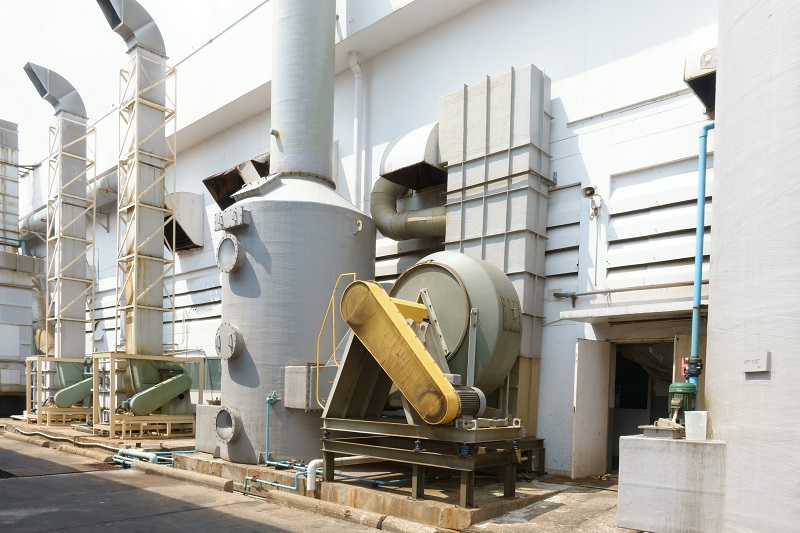A dust collection system is an integral part of any industry set ups where machineries like wood working machines, grains packaging industries, tea factories, etc. where dust is one of the basic waste products while manufacturing. The function of a dust collector is similarly as the name suggests, is to collect the dust to make the work seamless and organized.
- A dust collector works with suction system, where it inhales all the airborne dusts as well as manufacturing dust byproducts and helps to keep the work area clean and free from any sign of dust.
- A dust collector essentially makes use of a vacuum system and an electric motor operated high speed fan which helps to drive in air. There is an in-built filtration system which blocks and collects the dust from the air. The operation is similar to home used vacuum cleaners.
- Keeping the work area dust-free promotes healthy environment for working, easy breathing, good for lungs, and enhances the air quality, as well.
There are a few specifications of these dust collector systems which determines you only buy the best dust collector.
Filtration Capacity
It is important to check the filtration capacity when you are seeking to buy the best dust collector, for it is this feature which determines the efficiency of the machine to remove the suspended air particles from the air. Manufacturers provide details of their machine diameters and if you are looking for a standard dust collector, it would probably come with air bags which can screen dust particles through a diameter of about 2.5 microns.
Now, if you are specifically looking for the best dust collector, then try HEPA filters, which are highly efficient ones with high-efficiency particulate air technology, capable of filtering pet dander, smoke, pollens, etc.
Air Suction Capacity
Air suction capacity of the collector determines its capacity to manage the airflow rate. Airflow is usually measured in terms of cubic feet per minute that is CFM. The CFM limit ranges from low to high which also indicates the strength of the motor of the dust collector.
The CFM varies according to the purpose and model of the machine, that is best dust collector meant for home use are naturally of low CFM as compared to those designed for the industrial use. Portable models of dust collectors come in 150 CFM, while the industrial purpose collectors start from 1,500 CFM or around.
Power
Even the power of dust collectors varies according to the purpose. While home dust collectors are small portable models with low horsepower, the industrial motors range from 1 horsepower to 2 HP or sometimes even more for large-scale dust collection in big industries.
Quality and Performance
Just blindly trusting over brands, sometimes do not return expected ROI. Therefore, it is rather important to do market review of different brands to understand the most capable ones for offering uncompromised performance for long hours.
Whether you want a dust collector for your home, shop, or for your industry, it is a hefty investment, more so for the industrial ones. Again, your dust filtration requirement can differ accordingly, based on which you need to choose the filtration capacity, power, air suction capacity of the machine to suit your specific requirements.
To sum up
When you are shopping for the best dust collector only the initial working features are not the sole aspect which makes it the best, but even operational cost, maintenance cost, energy consumption, repair and replacement requirements, durability, performance track record with every passing year also matters when you are trying to determine the ROI. In order to get the best collector for your needs, it is essential to read through user reviews, compare among your available options, instead of purchasing just the one from the renowned brand.

